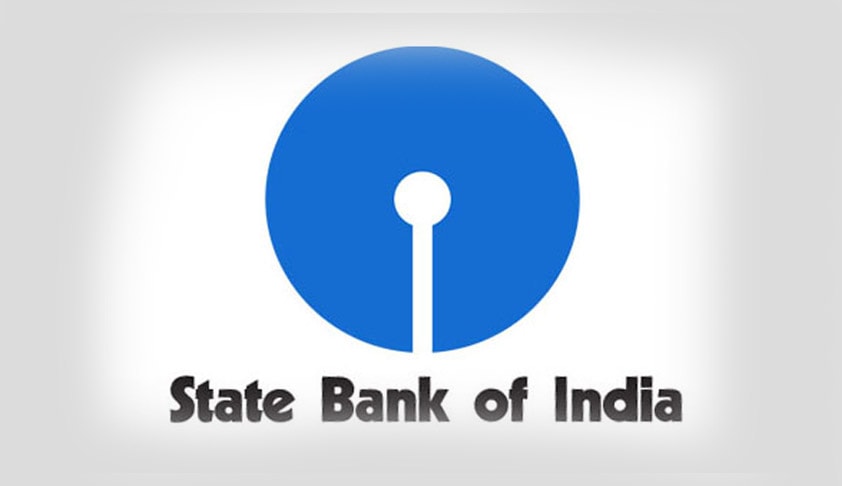‘SBI Can’t Misinterpret RBI Circulars’- Madras High Court Holds Collection of Cash Handling Charges From Stamp Vendors Illegal
Sebin James 14 Nov 2021

The practice of collecting cash handling charges from stamp vendors who deposit money through treasury challans into the Government account must be done away with, Madras High Court has ruled recently, giving strict directions to the State Bank of India.
Justice S.M Subramaniam made it clear that the two RBI Master Circulars in 2014 and 2021, vehemently relied on by the State Bank of India does not permit the collection of cash handling charges on Government transactions.
SBI cannot just misinterpret the RBI circulars and collect such payments based on its own assumptions and inferences, the court noted.
“In the absence of any such specific direction or instructions from the Reserve Bank of India, the State Bank of India is not entitled to collect any entitled to collect any cash handling charges from stamp vendors. Any such collection must be strictly in accordance with the Reserve Bank of India Regulations or in accordance with the Banking Regulations.”
The High Court has also come down heavily on the public sector bank for the insensitive conduct of its officials, which was laid bare during the course of the case.
The State Bank of India is a public sector and the authorities are the public servants. The petitioners are depositing cash in the Government accountsn on behalf of the Government through Treasury Challans issued to them.”
The court was severely critical of a statement in the counter affidavit filed by SBI which stated that “It is always open for the Petitioners (stamp vendors) to approach any other bank and continue their banking operations”. Hence, the court made the following observations in its order, asking the Assistant General Manager, SBI to initiate disciplinary proceedings after enquiry to ascertain under what circumstances such statements were allowed in the counter affidavit filed before High Court
“The Statement portrays the administrative arrogance on the part of the authorities in the exercise of their powers and the tenor of the statement is a threat to the public administration, as the stamp vendors have no option but to deposit money only in Government accounts at SBI Branches.”
The court opined about the necessity of altering the approach adopted by bank officials to customers and citizens:
“These employees/officials must be reminded off that, from and out of the transactions through the customers and citizens, the salary to these employees are paid. Thus, they are expected to maintain good conduct always and honour the rights of the persons approaching the Bank.”
The stamp vendors approached the High Court in 2016, seeking directions to SBI officials to waive off the cash handling charges imposed on them since January 2015, by remitting in the name of the account as ‘commission account’. The said commission demanded by SBI amounted to Rs 15/- for each curreny bundle containing 100 notes, the petitioners submitted. Despite the Director of Treasuries, Chennai intimating the bank via a 2016 letter about the impermissibility of such charges levied since the Government has been paying the banks separately for every government transaction, the respondent has carried on with collecting agency commission from the individual vendors.
The petitioners also submitted before the court that the nature of the transaction involved was not ‘private’, since the money is being deposited in Government accounts through Treasury Challans for the purpose of purchase of stamps and not for individual current/ savings accounts.
The counsel for respondent bank officials argued that the two RBI Master Circulars clearly confer upon them the right to collect agency commission and cash handling charges for every transaction and that the Director of Treasuries and Accounts have no authority to prevent them from doing the same.
Principal Secretary to Government, Finance Department, suo moto impleaded by the court presented a different version in its counter affidavit about the payment of commission to SBI. Finance Department pointed out the discrepancies in SBI’s submissions, including the silence about the permissibility of collecting cash handling charges in respect of deposits made into Government Accounts by way of challans. The Finance Department also underscored the absence of any mention about cash handling charges for cash deposits into government accounts through challans in the SBI Circular that revised the rates of cash handling charges in 2019.
Saying that SBI, Chennai is confused about the permissibility of such cash handling charges by its own Head Office, the Finance Department also submitted that with respect to transactions concerning government business, the agency commission is paid by RBI:
“For every Government transaction, Agency commission claim for every quarter is prepared by each Agency Bank which is authenticated by the Treasury Officials for claiming the amount by Bank Authority from competent authority.”
Therefore, the court held that cash handling charges collected by SBI is impermissible and SBi has erred by misinterpreting the RBI Master Circulars:
Perusal of the Master Circulars relied on by the Second and Third Respondents /State Bank of India dated 01.07.2014 and 01.04.2021 reveals that the Second and Third Respondents are unable to establish that there is a direction / instruction / permission granted by the Reserve Bank of India to collect such cash handling charges on Government transactions. In the absence of any such specific direction or instructions from the Reserve Bank India, the State Bank of India is not entitled to collect any cash handling charges from stamp vendors.”
It was also alleged by the petitioners that SBI has been collecting cash handling charges even when the interim court order against such collection was in force. The court has held that if the petitioners could produce proof about the same, SBI will be bound to return the money so collected.
About SBI not responding to the Director of Treasuries, the court rapped the bank for disregarding an officer of the state and observed that whenever such letters are communicated by the Governmental authorities, the State Bank of India, is bound to respond in an appropriate manner. The court felt the need to sensitise SBI bank officials about the due courtesy that must be shown to officials performing administrative/ public functions:
“Contrarily, they are not expected to neglect such letters or to proceed under the pretext that they need not respond to such letters. This nature of conduct is also to be construed as irresponsible on the part of the State Bank of India authorities.”
In addition to underlining the impermissibility and illegality of cash handling charges collected from stamp vendors and directing the SBI to not collect such charges anymore, the court has also asked to communicate the court order to all branches of SBI with necessary instructions. Moreover, Justice S.M. Subramaniam has directed to upload the same on the official website of SBI to make the citizens aware of their own rights pertaining to cash handling charges.
Case Title: P.S Shanmuga Sundaram v. The Director, Treasuries And Accounts Department & Ors., K.A Vijayakumar v. The Director, Treasuries And Accounts Department & Ors., C. Thirumohan v. The Director, Treasuries And Accounts Department & Ors
Case No: W.P. Nos. 34347, 24076 and 34348 of 2016

